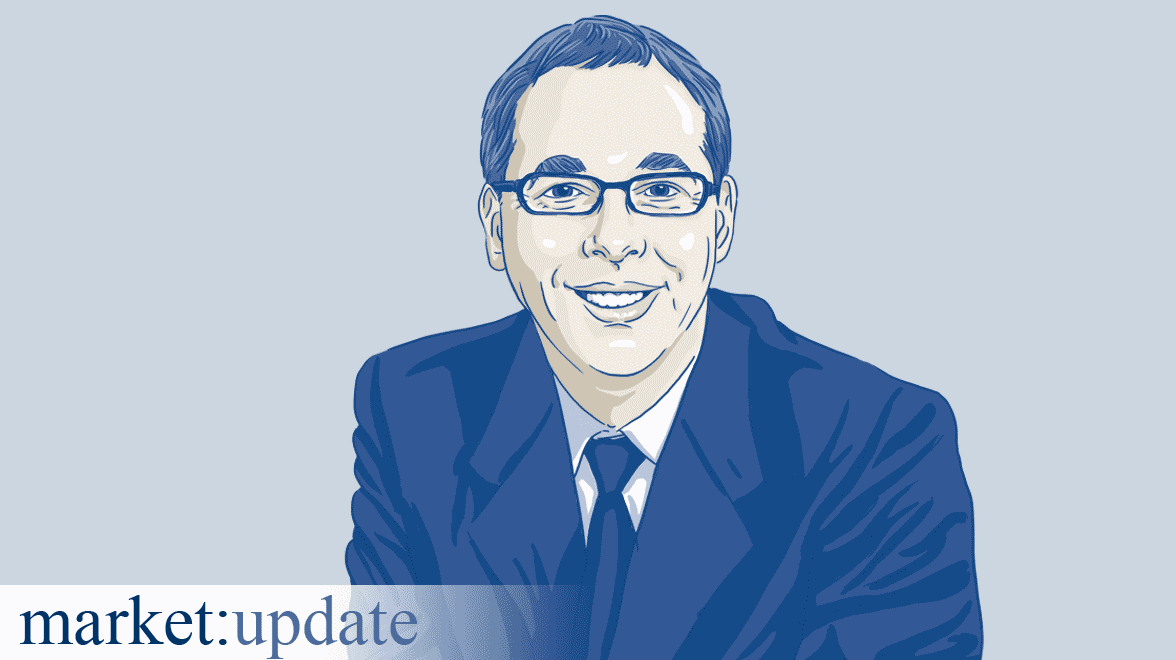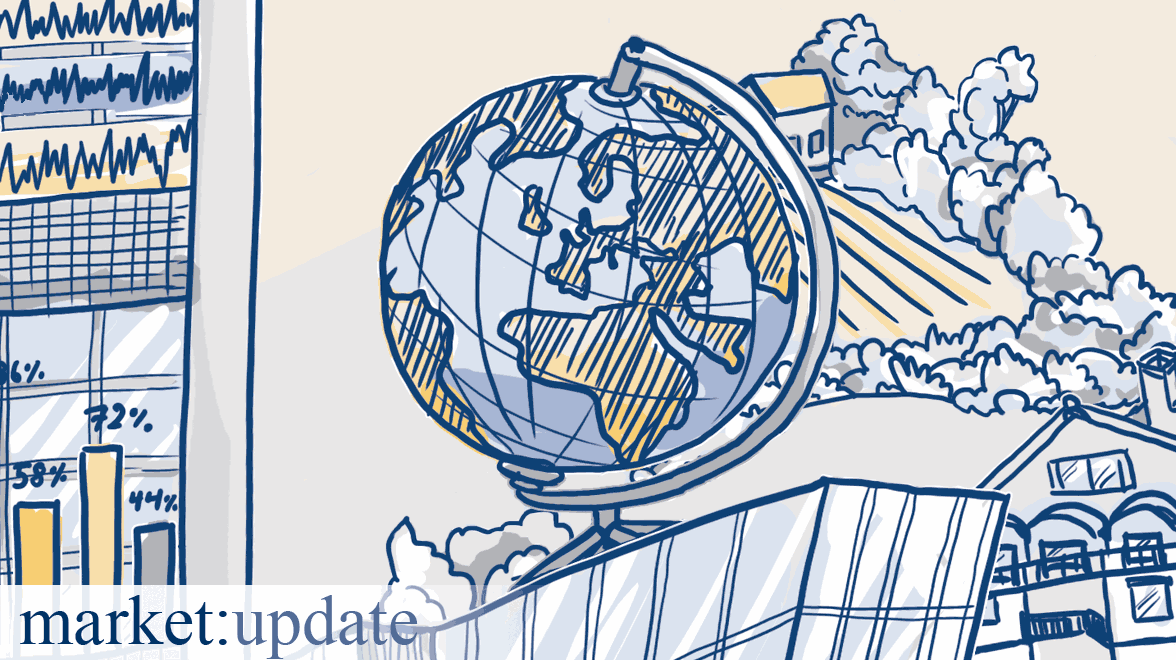Die Deflation in China senkt den Inflationsdruck in Deutschland
The article is not available in the chosen language und will therefore be displayed in the default language.
Inflationsdaten aus China im Fokus
Der makroökonomische Datenkalender in der kommenden Woche ist eher dünn. Das Highlight sind die chinesischen Preisdaten. So wird laut Bloomberg mit einer anhaltenden Deflationsdynamik der Konsumentenpreise (Donnerstag) von -0,5 Prozent zum Vorjahr im Januar gerechnet. Für den Rest der Welt sind aber die chinesischen Erzeugerpreise (Donnerstag) relevanter. Laut Bloomberg wird mit einer stabilen Deflation von -2,6 Prozent zum Vorjahr gerechnet.
Quellen: Refinitiv Datastream, Metzler; Stand: 31.12.2023
Ein Blick auf die Grafik zeigt einen engen Zusammenhang zwischen den Preisen ab dem Fabriktor in China und den Importpreisen Deutschlands. China ist der größte Handelspartner Deutschlands. Und Chinas Banken geben derzeit in einem erheblichen Volumen Kredite an Industrieunternehmen aus. Es entstehen somit in einem großen Umfang neue Industriekapazitäten in China, mit dem Ziel, Exporte zu steigern und damit Wirtschaftswachstum zu generieren.
Der Vorteil für Europa ist, dass dadurch die Importpreise merklich fallen und der Inflationsdruck nachlässt. Die Inflation in der Eurozone könnte schon bald auf 2,0 Prozent fallen. Der Nachteil für Europa ist aber, dass die chinesischen Exporte, die oft infolge von erheblichen staatlichen Subventionen sehr wettbewerbsfähig sind, die europäische Industrie zu verdrängen drohen. Gerade die deutsche Industrie ist in Gefahr, wie schwache deutsche Exporte (Montag), Auftragseingänge (Dienstag) sowie die Industrieproduktion (Mittwoch) eindrücklich zeigen dürften.
Es stellt sich die Frage, wie die europäische Politik die europäischen Privatunternehmen vor der Konkurrenz chinesischer Staatsunternehmen schützen kann. Erfahrungsgemäß sind Subventionswettläufe volkswirtschaftlich eher kontraproduktiv. Wahrscheinlich bleibt Europa nichts anderes übrig, als dem Weg der USA zu folgen und deutliche Handelsschranken aufzubauen.
Gleichzeitig sollte Europa aber auch Freihandelsabkommen mit anderen Ländern und Regionen wie Lateinamerika verhandeln, damit Europa grundsätzlich ein offener Markt bleibt. Zu viel Protektionismus schadet oft der eigenen Volkswirtschaft, da dadurch ineffiziente Monopole im Inland entstehen können.
Darüber hinaus werden noch die Lohndaten in Japan (Dienstag) veröffentlicht, die für die Geldpolitik der Bank von Japan äußerst relevant sind. Und auch die Einkaufsmanagerindizes des Dienstleistungssektors (Dienstag) werden von vielen Ländern veröffentlicht.
More articles
This document published by Metzler Asset Management GmbH [together with its affiliated companies as defined in section 15 et seq. of the German Public Limited Companies Act (Aktiengesetz – "AktG”), jointly referred to hereinafter as “Metzler“] contains information obtained from public sources which Metzler deems to be reliable. However, Metzler cannot guarantee the accuracy or completeness of such information. Metzler reserves the right to make changes to the opinions, projections, estimates and forecasts given in this document without notice and shall have no obligation to update this document or inform the recipient in any other way if any of the statements contained herein should be altered or prove incorrect, incomplete or misleading.
Neither this document nor any part thereof may be copied, reproduced or distributed without Metzler‘s prior written consent. By accepting this document, the recipient declares his/her agreement with the above conditions.
 Deutsch
Deutsch English
English


